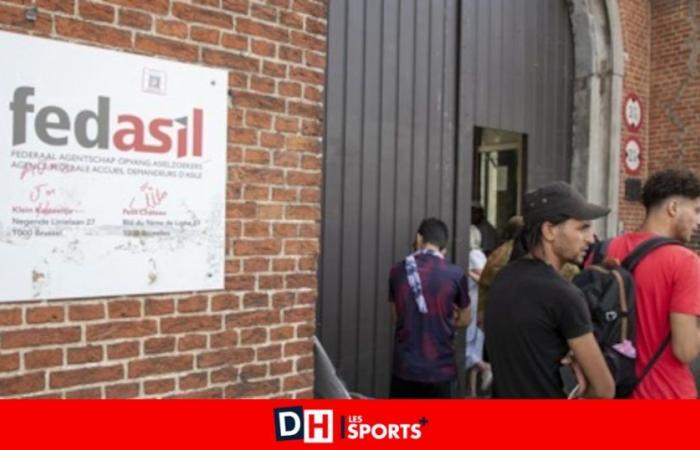In Belgium, reception centers for asylum seekers – including the 36,000 places in the Fedasil network – are seriously saturated. To the point that, since last September, the resigning Secretary of State for Asylum and Migration Nicole de Moor (CD&V) has decided to suspend the systematic reception of single men in Fedasil structures. Since this summer and this decision contrary to the law, these alone men have been living on the street, in squats or in emergency accommodation.
In order to relieve (a little) these reception structures, Nicole de Moor decided this Friday to shorten the duration of reception in the centers, and to only grant it to people who are currently undergoing the procedure.
Until now, people who received a final negative decision on their asylum application could initiate other procedures, such as a request for regularization, to extend their stay in these centers. On average, they still remained there for a hundred days. From now on, notes the Secretary of State, they will have to leave the reception centers within thirty days. To do this, an order to leave the territory (OQT) will be notified to them much more quickly than in the past. As is currently the case, Fedasil will provide them with support for their return to prepare for a voluntary return to their country of origin.
For families with children
This measure should free up a thousand places. This is not a structural response to the saturation of the centres, and even less to the number of “undocumented immigrants” who live in precarious conditions and who a large proportion of these people will inevitably join. Nicole de Moor, however, expects these places to benefit single men and families with children for whom places are also becoming increasingly rare.
In doing so, the Secretary of State is not deviating from her line: shorten as much as possible the procedure times and the time spent in the centres rather than financing new centres. Create new places”is not a solution to the significant influx of asylum seekers in our country”, she emphasizes again this Friday. It is in this sense that it has set up “fast track” (or accelerated) procedures for nationalities whose chances of obtaining asylum are very low. This is particularly the case for the Congolese, Moldovans and Georgians.






